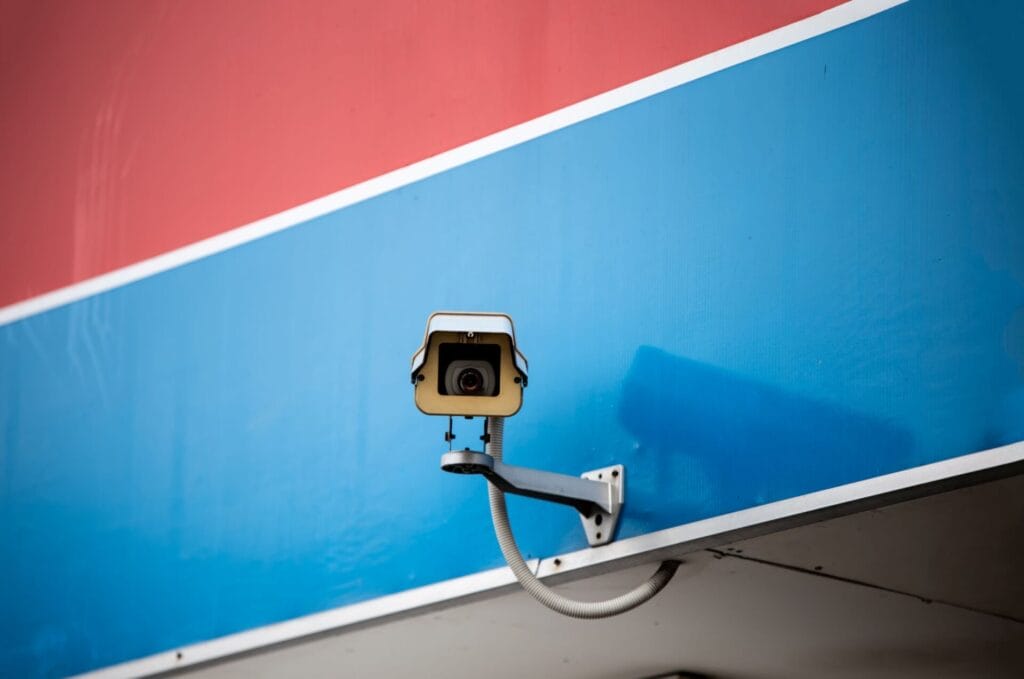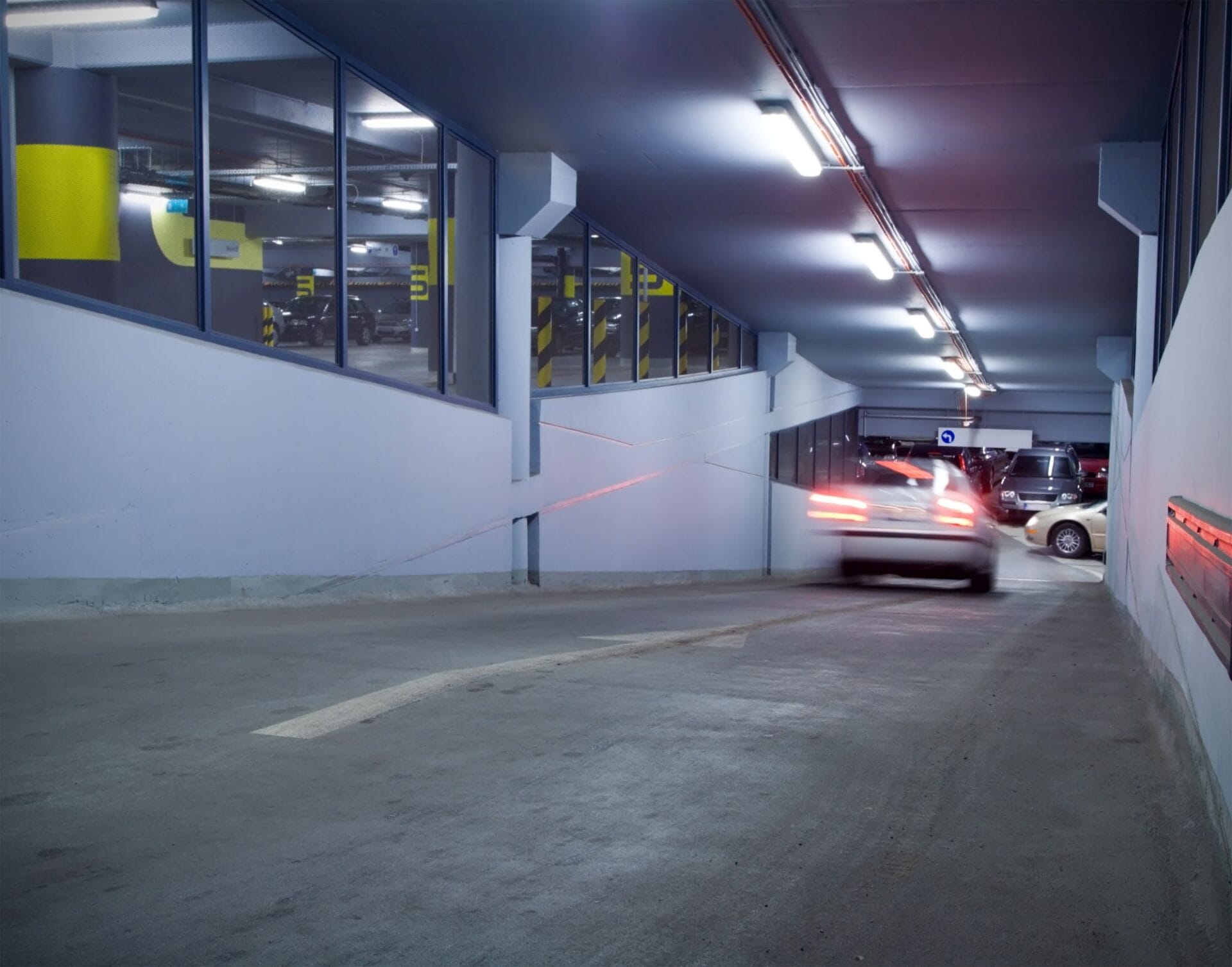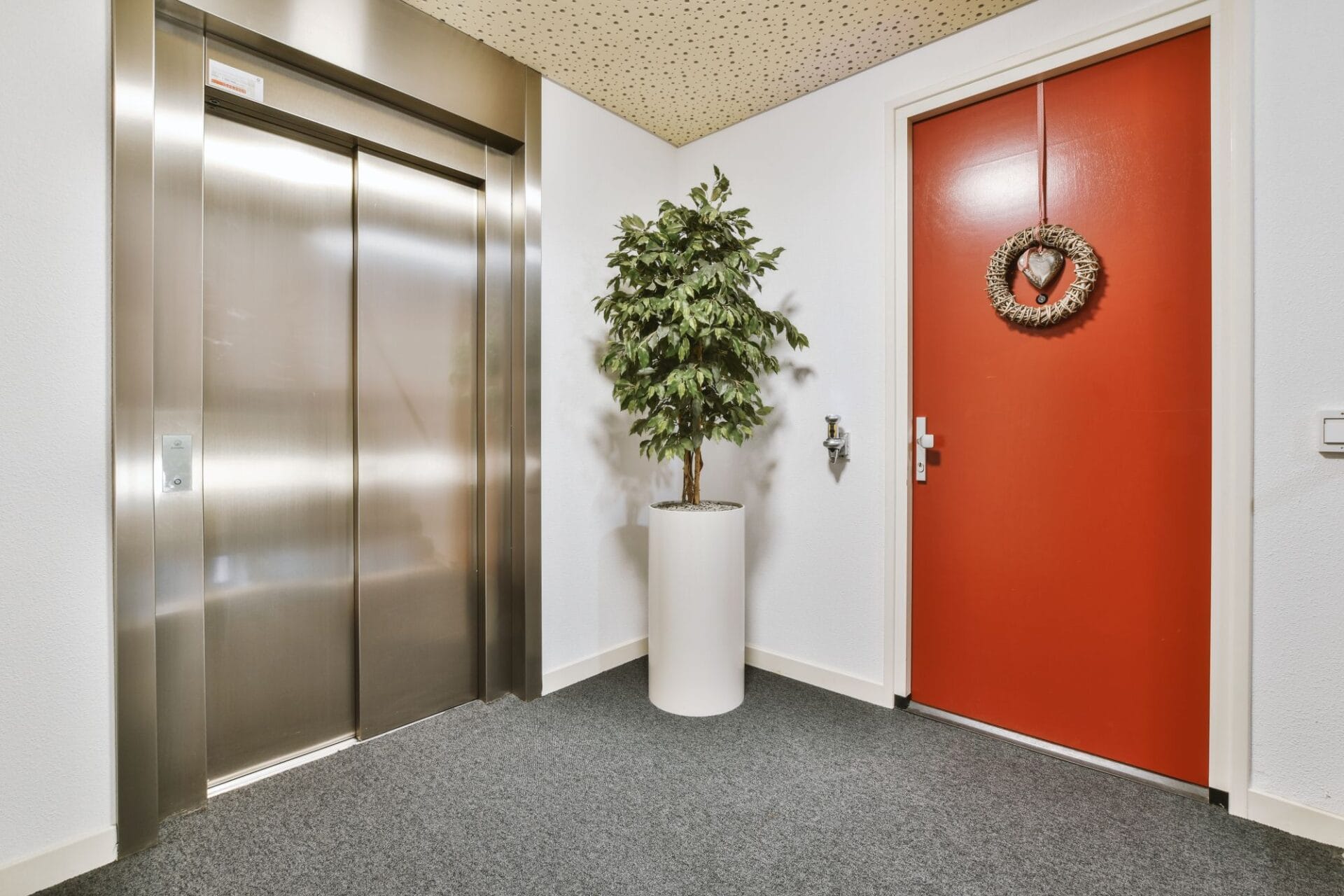Condo parking is one of the top sources of conflict in a multi-residential community. Sometimes there simply aren’t enough spots for every resident. Other times, problems arise because people don’t want to pay for parking. Instead, they look for empty spaces in guest and resident parking. Regardless of why the problems started, you want to know how to fix them.
There is more than one way to address persistent parking issues, and, as is the case for many issues, a multifaceted approach generally works best.
That being said, license plate readers can be effective access control solutions in condominium parking garages.
Table of contents
- How do automated license plate readers work
- How are LPR systems used in condo buildings?
- What about authorizing guests?
- Reasons to use a license plate reader in your condo
- Reasons not to use a license plate reader in your condo
How do automated license plate readers work
Automated license plate recognition (ALPR) cameras are not new, but the technology has become far more sophisticated. If you’ve ever driven on a toll road, you will have encountered a license plate reader (LPR) system.
At its core, an LPR system combines hardware and software to read license plates. However, it is capable of more depending on how it is applied.
This technology can be fixed, meaning the cameras are mounted on poles or buildings, or they can be mobile. In this second scenario, the camera is integrated into a security or patrol car.
Detection
When a vehicle passes in front of an LPR camera, the system processes the license plate. To be very effective, an LPR camera needs to have hardware components that support optical character recognition (OCR). OCR technology converts images of text into machine-encoded text.
Interestingly, LPR cameras don’t have to be as sharp as surveillance cameras since they are not intended to capture images of faces. But, infrared illuminators are required due to the unique reflective properties of license plates. Infrared lighting helps LPR systems create accurate readings when the lighting conditions are poor.
Processing
Images are processed to isolate the license plate and extract the alphanumeric characters. Intelligent algorithms will enhance the appearance and filter out any irrelevant information to ensure accuracy.
Identification
After processing, the system should end up with a readable license plate number. This unique number is compared to a database of known plates. Depending on the application, this database might be looking to approve parking permit holders, flag stolen vehicles, or find drivers with outstanding warrants.
How are LPR systems used in condo buildings?
There are a couple of different ways to use LPR systems in condo buildings. If you want to take a more passive approach and simply have records of who enters and exits the parking garage, you can install motion-activated cameras that automatically capture license plate numbers that come into view, along with the date and time.

That data will automatically be uploaded and saved, usually to the cloud.
In most cases, photos are only reviewed if there is an incident or if local authorities request to see the data.
But the main use of an LPR system in a condo building is access control. The active approach requires a more technologically advanced setup, but less human intervention as well.
Instead of issuing cards or fobs to condo residents, registered license plates are added to a database. The software works collaboratively with the automated license plate recognition cameras to grant access to pre-approved plates.
If an authorized vehicle approaches the parking barrier, a camera will do a scan of the plate, find it in the database, and the software will lift the gate for the vehicle.
What about authorizing guests?
An LPR system can provide added convenience to residents, but what happens to guests who are not on the list of approved license plates?
Many access control solutions have already thought of this, and have found a way to make guests feel welcomed without compromising security.
Intelligent Security Systems (ISS), for example, integrates with Condo Control so that it can address both security and guest service issues. If a resident is expecting a guest who requires access to the garage, the resident can inform concierge ahead of time and ask that the guest vehicle be added to a pre-approved list, provided there is parking space available.
Condo Control shares that information with ISS so that it knows to let the guest into the parking garage when they arrive.
This solution makes residents and guests happy because it creates a frictionless experience for them. It is not only convenient, but thoughtful. That’s the kind of service that attracts prospects, and supports high retention rates.
Reasons to use a license plate reader in your condo
Could this access control solution work for your condominium? Here are a few good reasons why condos should consider using a license plate reader.
They can reduce conflict
A license plate reader system makes it far more difficult for unauthorized vehicles to get into the parking garage.
With fewer people stealing spots, management hears fewer complaints.
Condos may also blacklist specific vehicles if they know the drivers of those cars have created problems for the community in the past.
Finally, if people know their plate information is being logged, they are less likely to break parking rules.
They can increase revenue, or at least reduce operating costs
Condo communities will likely generate more revenue if they charge for resident and/or visitor parking. People can’t sneak in and avoid fees the way they can in a less secure parking area.
Similarly, concierge staff don’t need to be available as often when parking is streamlined. This gives them more time to focus on other tasks.
Cameras do not increase liability for the condominium
Lawyers who specialize in condominium law generally agree that license plate reader cameras do not increase liability for the corporation or association. In fact, it’s much more common for someone to bring forth a lawsuit due to negligence.
Nevertheless, condo boards and managers must ensure that the camera systems are secure so as not to compromise personal data. It doesn’t hurt to have a policy in place to establish rules and expectations. This way, residents know why the condo is taking photos of their license plates, and how long those images are kept.
Reasons not to use a license plate reader in your condo
There are alternative solutions to license plate readers. And even though they offer a streamlined solution, there are some downsides to these systems.
They can be more work to maintain
It takes resources (i.e., money) to install and maintain LPR systems. The condominium must consider costs, make a maintenance plan, and determine who can review footage. Plus, it must think about how long data will be stored, and where it will be archived.
Someone still has to manage and update the resident and guest database, too. And there will always be people who try to find ways to get around access control systems.
LPRs sometimes misread plates
Even technology can make mistakes. The camera can misread a plate if it is old and weathered.
They can be an additional source of stress for residents
If the camera misreads a plate, or the access control system malfunctions for some reason, residents are not going to be happy about it. These systems could create occasional problems for the people who use them regularly.
Furthermore, it could create a false sense of security for some. LPRs reduce unauthorized entries, but they can’t stop someone from smashing a window or stealing a car. Additional security measures are needed if vandalism and theft are recurring issues for the community.
Conclusion
License plate readers help condominium communities control who can get into the parking garage. The automated solution can reduce conflicts between residents and workloads for staff, but it is not a comprehensive security solution on its own.






















